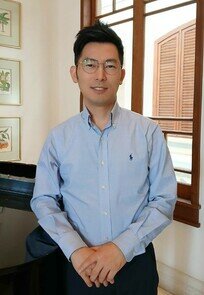
Dr LEE, Ju Seong
- +852 2948 7391
- B4-1/F-06
- jslee@eduhk.hk
- https://scholar.google.com/citations?user=bTlRySMAAAAJ&hl=en
Ju Seong Lee (李主聖), Ph.D. (University of Illinois at Urbana-Champaign)
I believe our greatest gifts—time and talent—are meant to be shared. When we use them to uplift those in need, we feel deep joy, build meaningful relationships, and strengthen communities. This belief has grown through volunteer work since 2000 across more than 10 regions—including Cambodia, Mongolia, and Thailand—where I witnessed how lifelong, lifewide, and informal learning can transform young lives.
Inspired by these experiences and by the Korean word for children, aideul (아이들), I introduced the concept of Informal Digital Learning of English (IDLE) in 2018. IDLE is the self-directed, interest-fuelled exploration of English in digital spaces. Research across 10+ regions shows that IDLE is linked to positive outcomes in over 20 areas, from enjoyment and growth mindset to speaking confidence. Successful IDLE learners often share key traits: a vivid future English self-image, a blurred line between learning and play, a habit of asking hypothetical questions, and a mindset that treats mistakes as opportunities for discovery.
Since 2020, we have translated these insights into action, collaborating with Indonesian educators to co-design and implement IDLE-based social impact projects that have reached over 2,800 students. Through multi-stakeholder partnerships with schools, universities, NGOs, industry, and governments across Indonesia and Vietnam, we are actively building an IDLE ecosystem. This ecosystem nurtures students’ future English self-image, motivating self-regulated practice that increases authentic input and output in digital spaces. This cycle enhances enjoyment, reduces anxiety, and ultimately strengthens real-world speaking proficiency.
Our mission is to ensure this hard-won proficiency opens doors, connecting students—particularly those in under-resourced and marginalized communities—to global opportunities that foster individual mobility, job creation, and regional growth.



